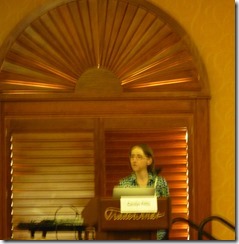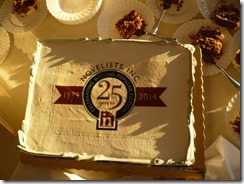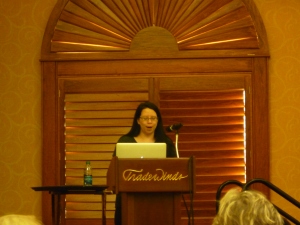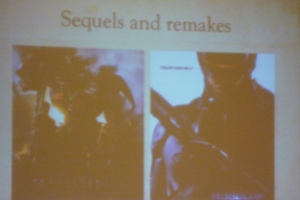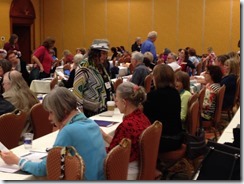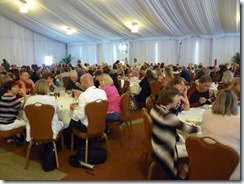Novelists, Inc. Conference St. Pete Beach Oct. 2014
The Novelists, Inc. (Ninc) conference is the only writers’ conference focused solely on the business of writing. To become a member, you must show proof of two published novels. This is not the place to promote your work, pitch to agents or pick up new fans. It’s primarily a learning experience. You go here to learn what’s new in the business, what’s to come, and how to approach the many aspects of running a small business in the publishing field.
Of course, meeting old friends and making new ones is the benefit of any conference and this gathering was no exception. People came from across the country, enjoying the perfect Florida weather and beachfront setting.
Photo 1: Nancy J. Cohen, Annette Mahon, Carole Nelson Douglas, Laura Resnick
Photo 2: Nancy J. Cohen, Terry Odell, Karla Darcy




Photo 3: Donna Andrews, Carole Nelson Douglas, Nancy J. Cohen
Photo 4: Sophia Knightly and Nancy J. Cohen

First Word Thursday: The Future Of Publishing, Part 1
Any errors in this article are due to my interpretations. As many ideas flew back and forth during each session, I will mention what I gleaned from the panels, and you can take from it whatever serves your needs.
Nine industry guests discussed the partnerships between authors, publishers, and agents. Journalist Porter Anderson moderated.


A partnership is a power relationship. Consider where the power lies in each transaction. Ask yourself what your skills are, what partners have complementary skills, and who has the scale to utilize these skills to your benefit. Partnership implies equality, but at the end of the day, it’s your business and what you, as the author, have created. You want partners who can connect your book with a wide audience in new ways. Also, know the financial health of your potential partners.
One speaker was concerned that companies with enormous “scale” had their own agendas. They focus on profits rather than on promoting each title in a sustainable way. Publishers are making more profits today and more margin on e-books even when they say they’re hurting. Incumbents like the Big 5 are the least likely to innovate.
As an author, try to retain as much control as possible. Allow for new avenues to explore but examine them from all angles. With the advent of new technologies, look for shorter terms in your contracts so these new models can be tested and evaluated.
The key to partnership is mutuality. Traditional publishers must be more willing to let their writers go, because once your titles go backlist, you lose the mutuality. Print on demand and e-book publishers should not keep a book in print unless the author is making real money.
Competition drives innovation. Google could become a viable competitor to Amazon.
The most important relationship an author has is with his readers. What you write has to connect with your readership. Write consistently. Target your audience and determine how to reach them. Continuance between the author and reader is important whatever the distribution route. Unfortunately, often authors talk to other authors and sell to other authors. Focus on your readers.
Bringing back the mid-list has been the biggest benefit of digital publishing. However, there’s a glut of writers out there, so the solution is to increase demand. Society and culture need to make reading a valuable pastime. Let kids read fun books instead of classics in school. Every one of us should be involved in turning people into readers. How to sell books in a sustainable way is a critical issue.
One of the keys to self-publishing is for bookstores to open to indie authors. The recent deal between bestselling author Barbara Freethy and Ingram is encouraging.
BookLamp analyzed the contents of a book and gave recommendations to readers based on the text. (This startup has been bought out by Apple.) Authors collectively have power and should ask more questions about their data.
A discussion came up on the pressure for authors to produce more and faster in the digital age. Quantity should not be versus quality.
The author on the panel spoke about how iBooks is her number one retailer. She is totally self-published. After taking years to write her first few books, she put them all up at once. Now she’s a self-sustainable, bestselling author. She has an international Street Team that helps spread the word about her books. Her encouraging words: “You can make a living without being a household name.”
What do international readers want? Amazon is starting to look at the translator marketplace.
Coming Next: Yo! Here I am! Buy me!
See all of my Photos in the Ninc album on my Facebook Page
